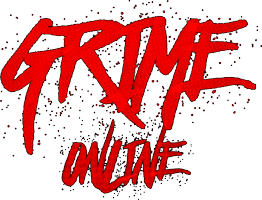The Brighton-born artist has risen fast by matching his larger-than-life personality with a rapid-fire flow and tightly packed bars
What a difference a year can make. Rewind to December 2020 and ArrDee – aka Brighton teenager Riley Davies – was juggling working nights with getting trains up to London for studio sessions and to network with industry types.
Those long, sleep-deprived days and journeys paid off. This year, the 19-year-old rapper featured on the first drill track to reach number one (Tion Wayne’s ‘Body’), bagged three Top Ten hits – the garage-indebted ‘Flowers (Say My Name)’, ‘Oliver Twist’, and a spot on Digga D’s ‘Wasted’ – and has injected the UK rap world with a cheeky sense of humour that had arguably been missing from the scene for some time.
Here, he tells NME about why it’s important to represent his hometown, what it’s like to count Stormzy among his fans and how he’s bringing something different to the UK rap scene.
NME: 2021’s been a bit of a whirlwind for you, hasn’t it?
ArrDee: “Yeah it’s been madness! Just catapulted into fame, the scene, or whatever you’d like to call it. It’s been a lot but we’re rolling with it. Where it is so fast, it almost makes it easier because I’m always busy. I don’t get much time to sit and think ‘Rah, this is mad’. But I’ve been ready for it for a long time…”
How did you first get into music, then?
“My mum is quite heavily into music so I would always be listening to her CDs. It was a lot more rock music, though, like P!nk, Guns & Roses, Bon Jovi and AC/DC. I think that’s where my variety in terms of what I can do comes in.
“Rap music came as I got a bit older. When I saved up pocket money, the first albums I bought were 50 Cent’s ‘Get Rich or Die Trying’ and Eminem’s ‘Marshall Mathers LP’. I’ve always been madly in love with the whole rap culture.”
You started writing your own raps at school…
“The first time I ever rapped something of my own, I was eight or nine and in the shower, but at this time I didn’t listen to UK rap, so I was rapping in an American accent and just talking shit, to be honest.
“Then a long while after that, when I found out about grime and started digging into the scene, I ended up stumbling across all of the Lord of the Mics; like Devilman vs Skepta, and P Money. We started doing that in the music room at school and none of my mates wanted to do it with me anymore because it was unfair – I was body-ing everyone! So I became the jammer in the middle, and they were like ‘Yeah, you should write something’.
“After starting secondary school, I put something up on my YouTube channel. Everyone was like, ‘You’re mad confident to put the song out there, knowing that anybody can chat shit’. But in my head, it was like, ‘Jay-Z ain’t always been Jay-Z, you have to start somewhere’.”
How has your writing style changed?
“Up until the end of last year, I used to write a lot more aggressive or emotional rap with a lot of storytelling. And it was a lot more hip-hop as well; Brighton’s quite a hip-hop culture town, which is why I think I fell in love with rap before grime and the UK scene. But it wasn’t until I met my now-manager who said to me, ‘You’re actually quite an upbeat and a fun, vibe-y person, so why don’t you make some of that music as well as all the emotional rap?’”

Is making a career out of music something you always wanted to do?
“Yeah, there’s never been one doubt in my mind. When people used to ask, ‘What do you want to do when you’re older?’, my answer was, ‘I’m gonna be a rapper’. I didn’t want to word it like, ‘I want to be a rapper’… in the same way that I’ve got a bar in a song that’s ‘I wouldn’t call myself a dream chaser/’Cos calling it a dream would make it seem like it ain’t achievable/But this is what my dream’s made of’.”
Was there much of a rap scene in Brighton when you were growing up?
“There wasn’t much. Even though I was young, as I got a bit older, like 15 or 16, there were other rappers, but I was never included in the younger lot that did the rap because I’d been doing it for so long. So by the time all these older people were doing it, I’ve already been rapping and trying to rep Brighton for three or four years, doing Instagram freestyles. I think I built up about 7,000 followers, so I was already in the bracket with the older lot.”
What makes you stand out as a rapper in the UK scene?
“There’s a few things. I massively represent my hometown – I don’t just do it for me. And I think I represent the culture of what a lad or girl from my hometown is like, which I think is quite unaccounted for in the UK scene. But there’s also a lot of smaller towns across the country that don’t have somebody to represent their culture. And I think that’s how I came in and kind of shot off as fast as I did, because I was different. Jumping on different beats, my flow was different; I wasn’t talking about what everyone was talking about.
“And I was also confident, so that’s why I think I got a lot of hate at the start. I was quite flamboyant with my confidence, even though I wasn’t a bad man. I didn’t have no chains, I openly talked about being broke in my freestyles and doing stupid things.”
There’s a lot of humour in your lyrics – was that something you wanted to bring to the scene?
“Yeah, and again, I think that’s heavily influenced by Eminem. There’s a fine line between… obviously I’m not a parody rapper but Eminem, he had whole songs that were jokes, but still fucking hard. If I can make you laugh, cry, smile, get angry, then I’m doing what I need to be doing as an artist.”

Have you felt much support from other people in the scene?
“It’s a weird one. Sometimes it’s hard to tell what’s genuine and what’s almost beneficial love, but there’s definitely some real love. Like, I’d look at Tion Wayne – the guy changed my life and kept it real; that’s been a proper organic relationship.
“I also met Stormzy at the GRM Daily Awards and he gave me some great advice. We had a long conversation and he gave me a few gems. I’m not gonna drop them though! Meeting him and being there was a mad moment for me; it felt good but almost like I was meant to be there and that this was my life now. The picture we got together is on my mum’s mantelpiece.”
You brought your mum out onstage during your set at Wireless festival – that must have been a special moment?
“Yeah, so the first ever gig I did was in a pub in Brighton and it was a long time ago. I must have been 15, and were going through a lot, so I wrote her a letter explaining and apologising. She had no idea about it, and I brought her up onstage and rapped it to her. So I wanted to do the same thing at my first proper festival gig – and it happened to land on her birthday. I got the whole crowd to sing her ‘Happy Birthday’. I’ll never forget that moment.”
Were you surprised when ‘Body’ became the first drill track to top the chart?
“That was massive, and it was my entrance to the game as well. I hadn’t even had a single out at the point. I knew it would get in the charts, but I don’t think anybody knew it was gonna go number one. Obviously, the buzz was there from the original. And there were so many things that were different about it: the upbeat percussion comes from African soca music, and that hasn’t been used in drill beats before. And then it went wild on TikTok.”
What’s next for ArrDee?
“There’s definitely a project coming. We’ve got some big feature tunes and some massive singles, and I’m gassed about going on tour next year too.”
ArrDee’s latest single ‘Flowers (Say My Name)’ is out now
The world’s defining voice in music and pop culture: breaking what’s new and what’s next since 1952.
When you purchase through links on our site, we may earn an affiliate commission.
© 2022 NME is part of NME Networks.

